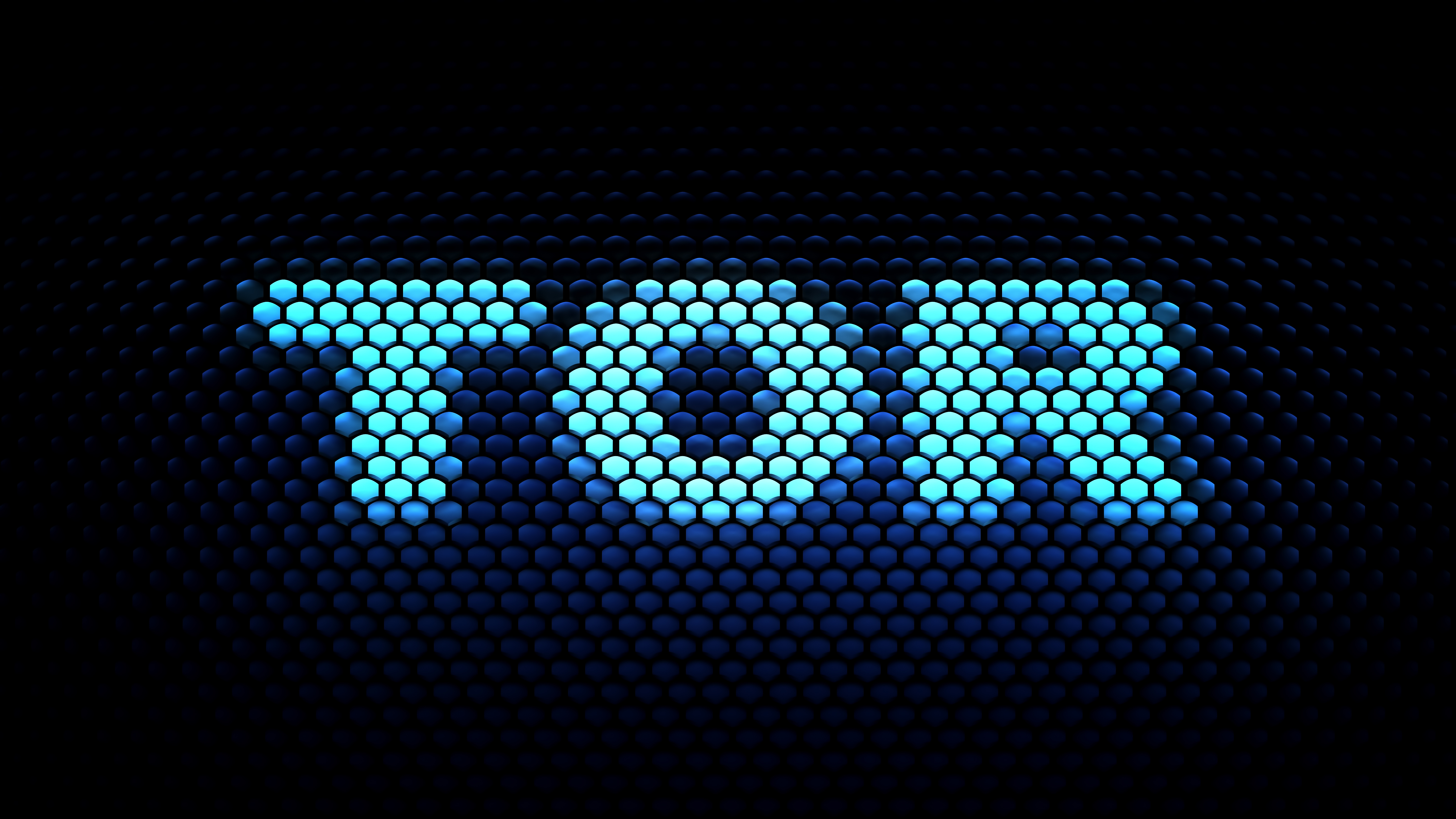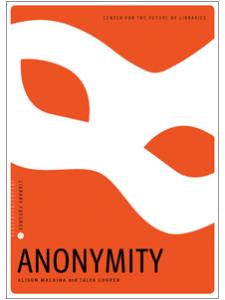"Anonymity is as important for librarians to understand, support, and promote as privacy": an interview with Alison Macrina and Talya Cooper
Will the rise of anonymity and the vulnerabilities it exposes, especially for governments and businesses, lead to a movement against it? Or have our society and its technology passed the point of no return? And why should libraries support and promote anonymity? Those are only a few of the issues discussed in Anonymity, by Alison Macrina and Talya Cooper, the newest volume in the Library Futures Series from ALA’s Center for the Future of Libraries. Along with founding the Library Freedom Project, Macrina is a librarian, internet activist, and a core contributor to The Tor Project. Co-author Cooper was previously the digital archivist at the Intercept, where she managed the Snowden archive, and the archive manager at StoryCorps. In this interview they talk about writing the book, the perils of social media, various anonymity tools for libraries, and much more.
The concept of anonymity, as a topic for a book, seems almost too far-reaching and complex to tackle. And yet your book is less than 100 pages! How did you sharpen your focus to be able to write something so succinct?
Alison Macrina: It is definitely a complex topic, and we could've written many hundreds more pages. But we wanted it to be a practical resource for librarians who are interested in the topic but lack an introduction to it. Privacy and anonymity are both topics that can easily overwhelm, especially when you're talking about technology. We sharpened our focus by thinking about manageable ways to incorporate this concept into library practice. It also helped to be given a word limit.
Talya Cooper: I think that — understandably — people tend to be scared when you start talking about privacy, anonymity, and digital security. It's confusing, we use daunting phrases like "threat model," and it seems like a big data breach or a policy change alters the landscape every other week. We didn't want to pile on dystopic examples (although we include plenty of those for good measure) that could make our readers feel hopeless. We aimed to emphasize that no one has a single foolproof solution; that there's a range of ways in which librarians intersect with users who might benefit from learning about anonymity, and a variety of things we can do to help them; and that opposing surveillance and enabling patrons to use tech anoymously falls in line with traditional, embedded values we share as librarians.
At the start, you take great care in differentiating privacy from anonymity. And then you write, "Given the current surveillance environment, we believe that anonymity is as important for librarians to understand, support, and promote as privacy in general." Why?
Alison Macrina: In the last few years, there's been increasing attention on privacy. There is now a general recognition that everyone needs privacy and should have their right to it protected and expanded. But anonymity is something that's still thought of on the margins — something that only  hackers or trolls or other edge cases might have any need for. But if we consider the ways that our identities are at risk on the internet, the ways that big tech companies monetize information about us, how difficult it is to just exist online without revealing exactly who you are, the need for anonymity can be better understood. We used to have anonymity in ways that we never had to think about — reading a newspaper, walking through the park, doing research at the library — that are increasingly not anonymous in a networked world. Now our activities are not only linked to our names, but linked to our other activities, often without our knowledge or consent. The implications for democracy and intellectual freedom are grave, and we want librarians to resist these new norms.
hackers or trolls or other edge cases might have any need for. But if we consider the ways that our identities are at risk on the internet, the ways that big tech companies monetize information about us, how difficult it is to just exist online without revealing exactly who you are, the need for anonymity can be better understood. We used to have anonymity in ways that we never had to think about — reading a newspaper, walking through the park, doing research at the library — that are increasingly not anonymous in a networked world. Now our activities are not only linked to our names, but linked to our other activities, often without our knowledge or consent. The implications for democracy and intellectual freedom are grave, and we want librarians to resist these new norms.
Talya Cooper: Often, the groups who come to public libraries to access computers and use the internet belong to groups that experience regular intrusions into their privacy. People of color receive the brunt of state surveillance; teens are watched by authority figures ranging from nosy parents to the security guards at the corner store. Librarians may not be able to make it entirely possible for anyone to use the internet fully anonymously, but in our role as technology educators for our communities, it's important for us to be able to explain to users what their options might be. For instance, one of the librarians we interviewed told us about a trans patron who hadn't come out yet, and who wanted to learn how to research their gender and sexuality anonymously. We believe that, as part of our professional commitment to giving all patrons the "freedom to read," librarians should be able to support patrons with these kinds of needs.
Libraries, like a lot of us, have a presence on social media; and using it can be an important way to perform outreach to the community about the library's services and offerings. But a sizeable number of Americans have dumped Facebook, Twitter, Instagram and the like because they don't like what those private companies are doing with their data. Have you heard from libraries that have similar concerns about their own social media usage? By being social media participants, are libraries implicated in those companies' questionable behavior?
Alison Macrina: I want to be perfectly clear: the blame for social media companies' bad behavior rests entirely with those companies and their shareholders. While I do think that it's a good thing for people to leave social media platforms, I don't blame anyone who feels like they can't, and libraries are in an unenviable position here — they need to reach patrons where they are, and even if many people are leaving social media, it hasn't reached critical mass yet. What libraries can do is put pressure on organizations like ALA to take a position in favor of social media regulation. Librarians could be a very effective political bloc if we did a better job of exercising our power; this is one of the things I teach about in Library Freedom Project.
Talya Cooper: As Alison says, none of us live in isolation from the tech giants and libraries have to use the tools available to them to reach patrons effectively and efficiently. Rather than totally eliminating social media, though, libraries can take a few small steps to incorporate privacy and anonymity-supporting tools and technology into their repertoires. Sure, have a Facebook page, but also add a link to Tor Browser on a library computer with a little poster that explains what it does and why it might be useful to patrons. Host a "cryptoparty" where local technology educators assist patrons with securing their devices and installing privacy-supporting apps.
As you point out, privacy, anonymity, and surveillance are moving targets. And the tools to preserve anonymity, legislative and otherwise, always seem to be a few steps behind. Why do you believe that the libraries of the future can truly support anonymity?
Alison Macrina: We need political solutions, not just technical solutions. Libraries of the future can support anonymity by pressuring lawmakers and our professional organizations to regulate private companies. Companies like Facebook and Google need to be broken up and also restricted in the  ways they're allowed to collect, use, sell, and store data. I would love to see a future where big tech companies are controlled like public utilities and accountable to the public. Technical solutions can and will grow alongside of these political solutions. The problem is that legislation takes much longer than technology does, so it's easy to focus on the technology we have today instead of investing in the future through politics. But we really need to do both.
ways they're allowed to collect, use, sell, and store data. I would love to see a future where big tech companies are controlled like public utilities and accountable to the public. Technical solutions can and will grow alongside of these political solutions. The problem is that legislation takes much longer than technology does, so it's easy to focus on the technology we have today instead of investing in the future through politics. But we really need to do both.
Talya Cooper: Librarians have a lot of public trust and respect and already have a reputation as defenders of privacy and the freedom of information. We also know better than anyone how valuable data can be and consequently, how it can be misused. We're well-positioned to keep the public informed and to use our collective power to advocate for better regulation of tech companies and against the continued abuse of surveillance and data-gathering technology by both corporations and the government.
What are some steps that libraries can take now?
Alison Macrina: We outline a lot of steps in the book, but I think all librarians (and all people) should do the Data Detox Kit: https://datadetoxkit.org/en/home. It's not exactly about anonymity, but it definitely helps you rethink your relationship with data and technology. After that, they should buy our book and take the advice in it.
Talya Cooper: In addition to the Data Detox Kit, I recommend looking at the resources Electronic Frontier Foundation has created, particularly Surveillance Self Defense (https://ssd.eff.org/en). Also, walk around your library and think about what might prevent someone seeking anonymity from finding it there. These could be basic physical barriers that you might not even think about: do you have privacy screens for your computers? do the computers delete logs between patron sign-ins? does the security camera point at the computer screens? Or technological, like maybe you use an e-book app that shares individual patron data with Amazon. Then brainstorm what you could do to accommdate people who might need to use the space and its services anonymously. You'll come to realize that a few small steps can go far. Don't be intimidated!
Learn more at the ALA Store.
